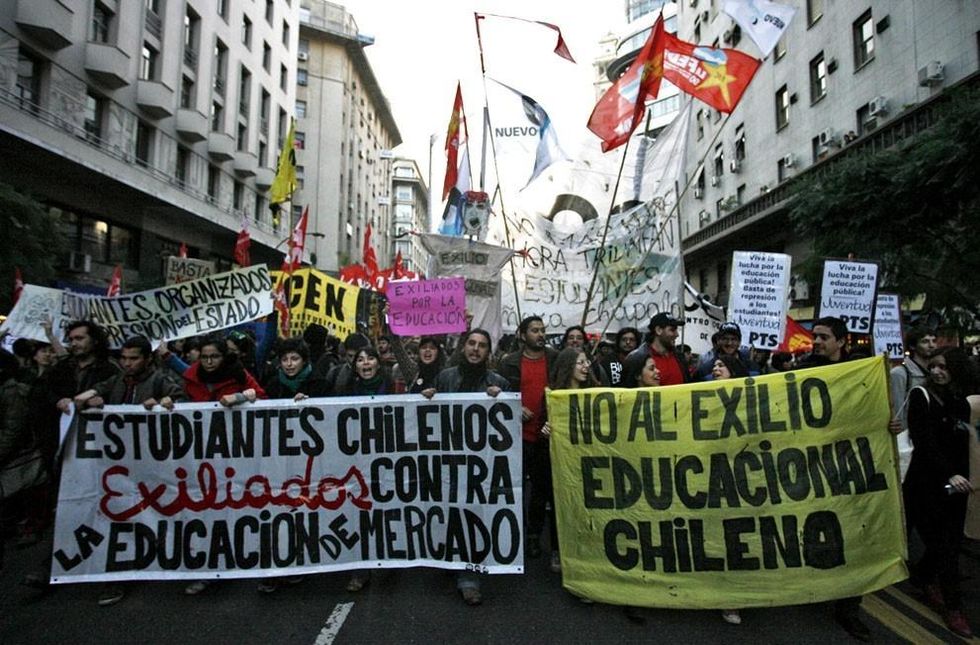Massive
protests are sweeping
Chile as students and
workers demand a reversal of school
privatization drives and wealth inequalities gripping the country.
"The only way in which education reforms respond to what the country in demanding is if there is direct participation from all social actors," declared Andres Fielbaum, leader of the Student Federation of Universidad de Chile.
Over 100,000 students were joined by teachers, dock workers, and copper miners in Santiago's streets Wednesday afternoon in massive protests capping off a nation-wide student strike.
Meanwhile, thousands are occupying schools slated as voting stations for Sunday's upcoming presidential primary elections.
Chilean authorities have threatened to call in the military to break up the protest tactic of toma, or school polling place occupations, the Santiago Times reports.
"The 'tomas' serve as a means of control and empowerment for communities," said Isabel Salgado of the Middle School Coordinating Assembly.
The escalating protests have been met by police crackdown, including rounds of teargas and water cannon fire and mass arrests.
Recent months have seen a revitalization of Chile's student movements since their 2010 launch, when youth organized mass protests and strikes in the hundreds of thousands nation-wide to call for a revamping of the country's education system that places more than half of all schools and universities into private, often for-profit, hands.
Chile competes for the world record in lowest public funding for education, a reality that student organizers say deepens wealth inequalities and further disadvantages the poor. The Chilean state does not provide a subsidized loan program for the country's notoriously expensive private university system.
Inequalities in distribution of Chile's vast copper wealth have deepened with the privatization of the Chilean copper industry, with Chile contending as one of the world's top copper producers.
U.S.-imposed 'free market' privatizing reforms since the 1970s have eroded the country's social safety net, gutted public services including education, and deepened wealth inequalities in this country often considered the 'darling' of neoliberalism.
_____________________




